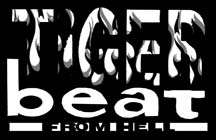|
Vol. 3, Issue #7 April 4th - April 17th, 2008
By: Wilhelm Murg Before The Music Dies Last week I finally saw Andrew Shapter and Joel Rasmussen’s brilliant 2006 documentary “Before The Music Dies.” It might be the single best statement on the problems facing music today. The filmmakers were not experts in the field when they started, they were simply fans who wanted to know why so much that is offered by the mainstream sucks. The usual suspect in their case is Clear Channel Communications, which no doubt plays a part in the unraveling of the standards of music today, but they are only a part of the equation. Before watching the film I had been thinking about the recent problems experienced by two of the biggest names in rock royalty: Ringo Starr and The Rolling Stones. In January, the usually amiable Ringo walked off the “Live with Regis and Kelly” show due to a dispute over the timing of the title track of his latest album “Liverpool 8,” which also happens to be one of his best albums in decades. The producer of the show wanted Starr to cut the song to less than three minutes. Starr cut it down by about a minute, and offered for them to fade to a commercial or take some time out of his interview, The show wouldn’t go for it, so he walked. Dave Stewart, former mastermind of The Eurythmics who has taken over as Ringo’s right hand, issued a statement: “Four minutes seemed like an appropriate amount of time for a former Beatle. (Show Producer) Mr. Gelman apparently felt Ringo’s musical legacy should take a back seat to additional banter about the size of Ms. (Kelly) Ripa’s derriere.” The sad thing is that the people who watch that retarded show were probably more entertained by hearing about Kelly’s ass rather than a new song by one of the masters of rock’n’roll - which is one of the reasons I’ve never been able to sit though a single episode. To show the difference in mentality, Craig Ferguson had Ringo on a few days later and gave the legend his whole show to create a mini-concert. In “Before The Music Dies” a lot of the chaos in radio today is planted at to feet of Clear Channel. After deregulation, they went from owning forty stations to three hundred forty stations, virtually blanketing the U.S. market. The idea isn’t to play music you like, but rather play music that is so innocuous that you won’t be offended, and thus you will keep it playing while you drive or work. Rather than fight against this system, many other owners studied the format. Now, virtually every radio station in the country is based on this simple formula: lots of Beatles and Elton John, or Nirvana and Pearl Jam if you happen to be an “alternative“ station. Many years ago, I worked in marketing and conducted some of the surveys that helped decide the programming of Tulsa stations. Our call floor would call for days, until we emptied entire trailer parks (or so it seemed) of about fifty goobers who: (a) listened to classic rock stations for more than four hours a week - because they were too broke to buy CDs (b) were unemployed, so $40 to sit for hours and be used like Pavlov’s frothing dogs seemed like good money to them and (c) were between the ages of 18 to 24. We were going for THE lowest common denominator. Someone at the station would make cassette tapes full of five-second snippets of their top 2000 songs. The poor saps in the survey had to sit with a pen and rate each one. It took days. If, heaven forbid, a new song was thrown into the mix, it usually got a zero rating because they didn’t instantly recognize it. This is the same reason we get movies based on old television shows. The darkest moment in “Before The Music Dies” takes place outside of an Ashlee Simpson concert. Five squealing girls are interviewed, the first three talk about how cool and real (wow) Ashlee is. The interviewer asks two other girls if they had heard of Bob Dylan, they giggle and say “No.” He then explains, “he used to inspire people to drive to Washington and burn their bras, does Ashlee Simpson inspire you to do anything?” They laugh and say “No.” The role of music has changed in our society. The Rolling Stones inspired me to look into the blues, David Bowie inspired me read “1984,” Laurie Anderson inspired me to read William S. Burroughs, Psychic TV inspired me to paint psychedelic canvases, and Fats Domino inspired me to move to New Orleans for four months to celebrate Mardi Gras. Ashlee Simpson inspired me to turn off the TV and find my kicks somewhere else. “Before The Music Dies” is worth the hunt, if only to let you know that you’re not crazy; the music of today really is falling apart at the seams. For more information visit beforethemusicdies.com. |
||
©2006-2008 NONCO Media, L.L.C.

